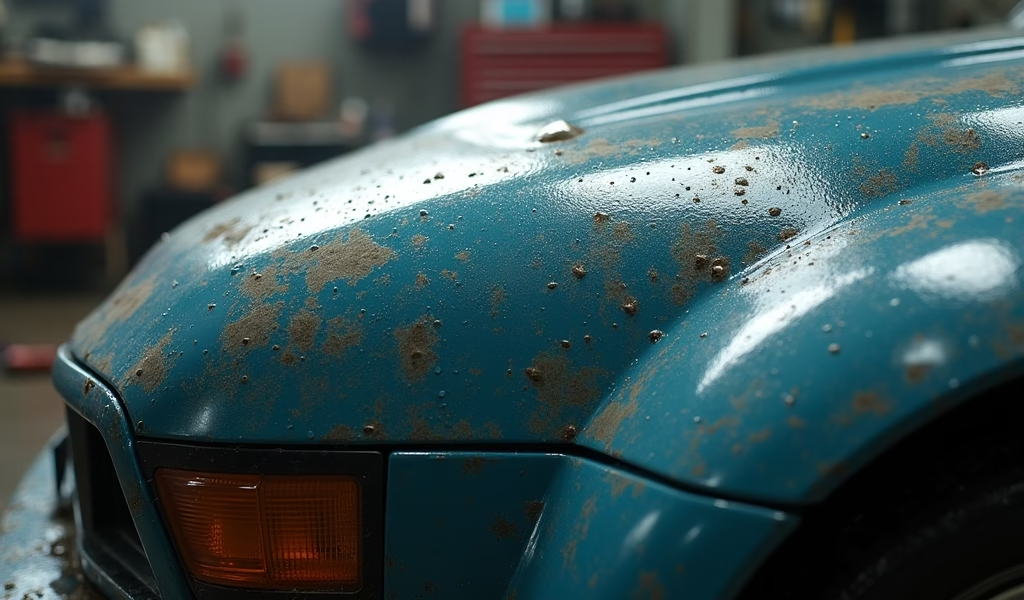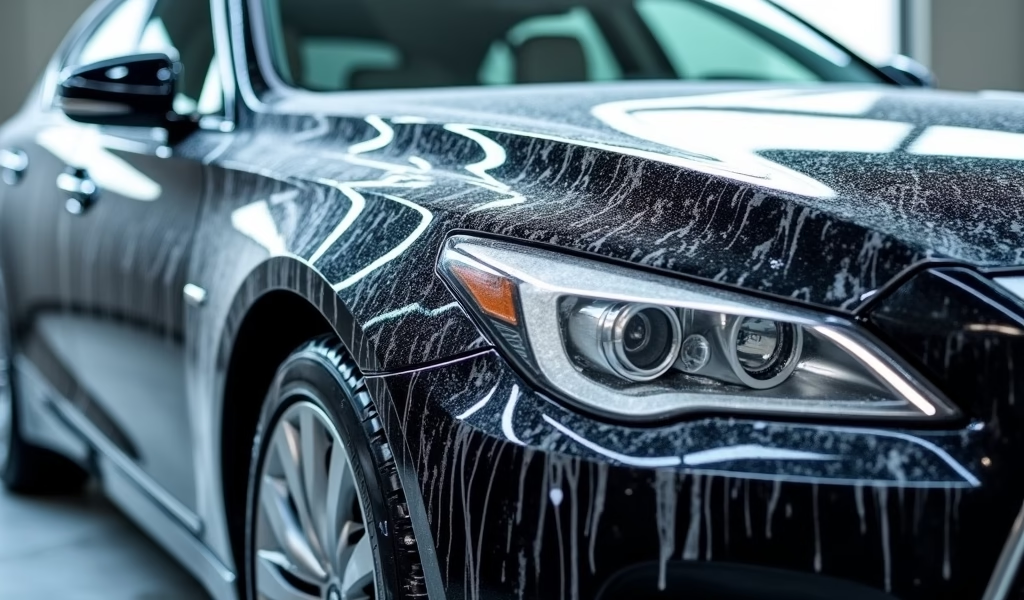Overview
This article, written by an experienced car wash attendant, examines five different professional wax treatments for vehicles—carnauba wax, synthetic polymer sealants, ceramic coating wax, spray wax, and colored wax—detailing their unique benefits, durability, and ideal applications. It provides guidance on selecting the most appropriate wax treatment based on factors like vehicle age, local climate, washing frequency, aesthetic preferences, and budget considerations, emphasizing that professional waxing not only enhances appearance but also serves as preventative maintenance that protects a vehicle’s value.
Table of Contents
- Understanding the Role of a Car Wash Attendant
- The Importance of Professional Wax Treatments
- 1. Carnauba Wax: Nature’s Premium Protection
- 2. Synthetic Polymer Sealants: Modern Protection Technology
- 3. Ceramic Coating Wax: Advanced Durability
- 4. Spray Wax: Quick Protection Solution
- 5. Colored Wax: Enhancing and Protecting Specific Paint Colors
- How to Choose the Right Wax Treatment
- Conclusion: Making the Most of Your Car Wash Visit
- Frequently Asked Questions
Understanding the Role of a Car Wash Attendant
As a car wash attendant with over a decade of experience, I’ve seen firsthand how the right wax treatment can transform a vehicle from merely clean to showroom stunning. When you pull up to a professional car wash, you’re not just paying for a simple rinse—you’re investing in specialized care that protects your vehicle’s finish while enhancing its appearance.
A skilled car wash attendant does much more than just spray water and apply soap. We’re trained to assess your vehicle’s specific needs, recommend appropriate treatments, and apply products with precision. The wax application process is particularly important, as it provides essential protection against environmental damage while giving your car that head-turning shine.
Today, I’m breaking down the top five wax treatments we offer. Each has unique properties and benefits, and understanding these differences will help you make informed decisions about your vehicle’s care. Whether you drive a family minivan that battles juice boxes and cheerios or a sleek sports car that turns heads, there’s a perfect wax treatment waiting for you.
The Importance of Professional Wax Treatments
Before diving into specific wax options, let’s talk about why professional waxing matters. Your car’s paint is constantly under attack from ultraviolet rays, acid rain, bird droppings, tree sap, and road salt. These elements can gradually deteriorate the clear coat and paint, leading to dulling, oxidation, and eventually more serious damage.
Professional wax treatments create a sacrificial barrier between your car’s paint and these harmful elements. Think of it as sunscreen for your vehicle—it absorbs the damage so your paint doesn’t have to. According to Consumer Reports research, regular waxing can extend the life of your vehicle’s paint job by years.
While DIY waxing is certainly an option using quality car wash products, having a professional car wash attendant apply wax offers several advantages. We have access to professional-grade products not typically available to consumers. Plus, our training ensures even application without damaging trim pieces or leaving residue in crevices—common issues for DIY enthusiasts.

1. Carnauba Wax: Nature’s Premium Protection
Carnauba wax is often referred to as the “queen of waxes” in the detailing world, and for good reason. Derived from the leaves of the Brazilian palm tree Copernicia prunifera, this natural substance produces the deepest, wettest-looking shine possible for your vehicle.
When a car wash attendant applies carnauba wax to your vehicle, you’re getting more than just a pretty finish. This natural substance has excellent water-beading properties that help rainwater roll right off your car, carrying dirt along with it. It also offers outstanding UV protection, which is crucial for preventing paint oxidation and fading.
The downside? Carnauba doesn’t last as long as some synthetic options. You can typically expect 4-8 weeks of protection before needing a reapplication. However, many car enthusiasts believe the trade-off is worth it for the unmatched depth and warmth carnauba brings to your paint, especially on darker colored vehicles.
Premium carnauba waxes often contain higher concentrations of the pure Brazilian wax—look for percentages on product labels when discussing options with your car wash attendant. The higher the percentage, the better the shine and protection, though prices increase accordingly. Many professional car washes offer tiered packages with different grades of carnauba wax.
2. Synthetic Polymer Sealants: Modern Protection Technology
If you’re looking for longevity, synthetic polymer sealants are the workhorses of the wax world. These man-made protective coatings represent the science-driven evolution of car protection. While traditional carnauba wax might last a couple of months, a good polymer sealant can protect your vehicle for up to six months.
When your car wash attendant recommends a synthetic polymer treatment, they’re offering you extended protection without frequent reapplication. These products form a strong chemical bond with your car’s paint, creating a durable shield against environmental contaminants. They’re particularly effective at repelling industrial fallout and acid rain—serious concerns if you live in urban or industrial areas.
The finish from polymer sealants tends to be distinctly different from carnauba wax. Rather than a warm, deep glow, expect a sharper, more reflective surface—almost like glass. This crystal-clear finish works exceptionally well on lighter-colored vehicles and modern metallic paints.
Many car wash facilities offer a hybrid option that combines the durability of polymer sealants with a top layer of carnauba for added depth. This “best of both worlds” approach is becoming increasingly popular among those who want both longevity and that classic wax appearance. Your car wash attendant can explain the specific synthetic formulations they offer and recommend the best option for your driving conditions and washing frequency.
3. Ceramic Coating Wax: Advanced Durability
Ceramic coating technology has revolutionized the car care industry in recent years. While full ceramic coatings are typically applied in detailing shops (taking several hours and requiring professional application), many car washes now offer “ceramic wax” or “ceramic spray” treatments that incorporate silicon dioxide (SiO2) technology in a more accessible format.
When a car wash attendant applies a ceramic wax treatment to your vehicle, you’re getting a taste of this advanced protection. These products create a chemical bond with your car’s paint, forming a hydrophobic (water-repelling) and oleophobic (oil-repelling) layer that’s remarkably durable. The water beading effect from ceramic products is truly something to behold—water practically jumps off the surface!
The primary benefits of ceramic wax treatments include enhanced resistance to chemical stains, bird droppings, and tree sap. The slick surface also makes your car easier to clean during subsequent washes. Many drivers notice that dust and pollen don’t stick as readily to ceramic-treated surfaces.
While not as durable as professional ceramic coatings (which can last years), these spray-on versions still outperform traditional waxes, typically providing 3-6 months of protection. The application process is more straightforward than full ceramic coatings, making it practical for integration into car wash kit services.
If you’re looking for modern protection with cutting-edge technology, asking your car wash attendant about their ceramic wax options is definitely worthwhile. The glossy, reflective finish combined with superior protection makes this an increasingly popular choice among car enthusiasts. According to Auto Geek, even these “ceramic lite” products can provide significant benefits over conventional waxes.
4. Spray Wax: Quick Protection Solution
For busy vehicle owners seeking regular protection without significant time investment, spray wax treatments have become increasingly popular at professional car washes. These quick-application products offer a practical middle ground between protection and convenience.

When a car wash attendant applies spray wax, they’re typically using a diluted polymer or carnauba formulation that can be quickly misted onto your wet vehicle and rinsed or lightly buffed. The application process takes just minutes compared to traditional paste waxes, making it perfect for integration into express wash services.
While spray waxes don’t offer the longevity of other options (typically lasting 2-4 weeks), they excel as maintenance products between more comprehensive wax treatments. Many regular car wash customers opt for a premium wax service bi-monthly with spray wax applications during their weekly washes in between.
The convenience factor is the biggest selling point here. When time is limited but you still want some protection and shine enhancement, spray wax delivers respectable results. Many modern formulations also include light cleaning agents that help maintain your vehicle’s appearance between more thorough washes.
For those who wash their vehicles frequently, spray wax can actually be more economical over time. The “little and often” approach helps maintain continuous protection rather than allowing your vehicle to become completely exposed between major wax treatments. Your car wash attendant can recommend an appropriate schedule based on your local climate and driving conditions.
5. Colored Wax: Enhancing and Protecting Specific Paint Colors
One of the more specialized offerings at premium car washes is colored wax treatments. These color-specific formulations are designed to enhance and enrich particular paint colors while providing protection. Think of them as combination products that both protect and beautify in one step.
When a car wash attendant suggests a colored wax, they’re recommending a product specifically formulated for your vehicle’s paint color. Black waxes, for example, contain special pigments and fillers that help minimize the appearance of fine swirl marks and enhance depth on dark vehicles. White and silver waxes often include optical brighteners that make light-colored vehicles appear crisper and more reflective.
The color-enhancing effects come from dyes and pigments that temporarily fill microscopic imperfections in your car’s clear coat. This creates a more uniform appearance and can temporarily mask minor defects. The effect is particularly noticeable on older vehicles where the paint may have begun to fade or develop minor imperfections.
Protection-wise, colored waxes typically perform similarly to standard carnauba waxes, offering 1-2 months of defense against the elements. They’re an excellent option for special occasions when you want your vehicle looking its absolute best, or for revitalizing an older car that’s beginning to show its age.
As detailing experts note, these products don’t permanently change your paint color—they simply enhance what’s already there. Your car wash attendant can help determine if your vehicle would benefit from a color-specific treatment based on its current condition and color.
How to Choose the Right Wax Treatment
With five excellent options to consider, how do you know which wax treatment is right for your vehicle? As a car wash attendant, I typically guide customers through a few key considerations:
- Vehicle age and condition: Newer vehicles with perfect paint might benefit most from long-term protection like ceramic wax, while older vehicles might need the minor filling properties of carnauba or colored wax.
- Your local climate: Extreme sun exposure calls for maximum UV protection from carnauba or ceramic treatments. If you deal with harsh winters and road salt, synthetic polymers offer excellent chemical resistance.
- Washing frequency: If you wash weekly, spray wax might be perfect for maintenance. If you go months between washes, you’ll want the longevity of synthetic or ceramic options.
- Aesthetic preferences: Some drivers prefer the warm, deep look of carnauba, while others love the sharp reflection of synthetic sealants.
- Budget considerations: While all professional wax treatments offer value, there are significant price differences between a basic spray wax and a premium ceramic treatment.
Don’t hesitate to discuss these factors with your car wash attendant. We’re trained to assess your vehicle’s needs and recommend appropriate treatments. Most facilities offer package deals that provide excellent value for regular customers, often combining different types of waxes and protectants for optimal results.
Remember that consistency is more important than occasional premium treatments. A regular maintenance schedule with moderate protection will always outperform sporadic deluxe treatments with long gaps of no protection in between.
Conclusion: Making the Most of Your Car Wash Visit
A skilled car wash attendant can be your vehicle’s best friend, offering expert advice and applying professional-grade products that keep your car looking its best. The five wax treatments we’ve covered—carnauba wax, synthetic polymer sealants, ceramic coating wax, spray wax, and colored wax—each have unique strengths and ideal use cases.
By understanding these options, you can make informed decisions when selecting services at your local car wash facility. Remember that professional waxing isn’t just about appearance—it’s preventative maintenance that protects your vehicle’s value and extends the life of its finish.
Next time you visit your car wash, take a moment to discuss your vehicle’s specific needs with your attendant. We genuinely enjoy helping customers develop effective maintenance plans tailored to their driving habits, local conditions, and aesthetic preferences. With the right combination of wax treatments and regular care, your vehicle can maintain that showroom shine for years to come.
Ready to give your vehicle the protection it deserves? Schedule a professional wax treatment today and experience the difference proper care makes!
Frequently Asked Questions
How often should I have my car professionally waxed?
Most vehicles benefit from professional waxing every 3-4 months, depending on the type of wax used and exposure conditions. Ceramic coatings may last 6+ months, while spray waxes typically need reapplication every 2-4 weeks.
Can I apply wax to a car that’s not completely clean?
No, waxing a dirty vehicle can trap contaminants against the paint and potentially cause scratches. Professional car wash attendants always thoroughly clean and dry vehicles before applying any wax treatment.
Is ceramic coating worth the higher cost compared to traditional wax?
For many drivers, ceramic coating’s extended durability and superior protection justify the higher initial investment. You’ll need fewer applications per year, and the protection is generally more comprehensive against environmental contaminants.
Will colored wax change my car’s paint color?
No, colored waxes simply enhance and enrich your existing paint color without permanently changing it. They contain mild pigments that fill microscopic imperfections and add depth to your current color.
Can professional waxing remove scratches from my vehicle?
Waxing can temporarily fill and mask very minor surface scratches but cannot repair actual damage to the clear coat or paint. For true scratch removal, you’ll need professional polishing or paint correction services.

